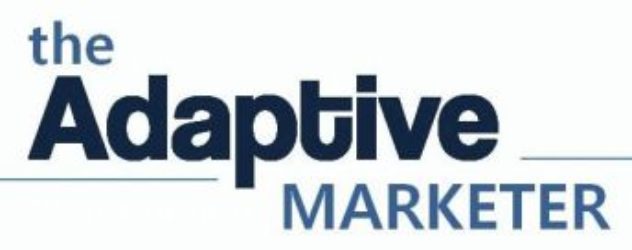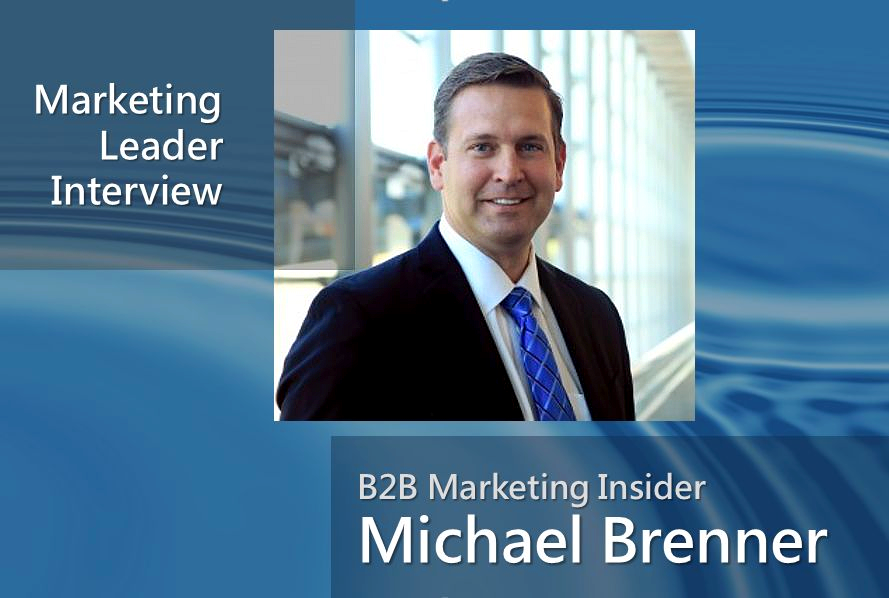Today’s Marketing Leader interview is with Michael Brenner, one of the most read thinkers on marketing, social and content marketing. Michael is the Head of Strategy for a really interesting marketing platform, NewsCred. Until recently, he was VP of Global Marketing and Content Strategy and Head of Digital Marketing for SAP Americas.
Michael is the co-founder of leading social news site Business 2 Community and creator of SAP’s Business Innovation thought leadership site. Michael contributes to leading publications such as Forbes, The Economist, and The Guardian.
Let’s see what Michael has to say about becoming a better marketer, where marketers should focus on and on improving the marketing function:
1. What company is an example of good marketing today? Who do you admire?
I am really impressed with what GE is doing. They are such an established company with a rich tradition and yet they are leading many B2B firms with creative approaches to marketing. In their ads, their Vines, and all the different approaches they are taking to storytelling, I think GE really understands the need to connect with people on a human level.
2. Did you have a mentor or a person you learnt the most from? What was a key lesson?
Well I am going to pick 2. I went to a conference about 4 years where Joe Pulizzi and Ann Handley were on a panel. And I walked up to them afterwards and asked them to help me understand how to implement what they were talking about at my company. They are both such great people, so knowledgeable, and so unique in the approaches they take to evangelizing the power of content marketing.
The key lesson I got from them is to be generous with your time and fight for the change you think our discipline needs.
3. What story of a successful marketing strategy could you share?
I started a new job a few years back in my career, and the company isn’t important. But I walked in to an amazing and unbelievable amount of wasted marketing. Demand generation tactics with zero results, no registrants, no leads. And almost no review of how well things performed after they were run. So I ran a whole bunch of reports and showed the team and the executives how much money was being wasted. No one cared, so I asked “why?!” What I found was a culture of order-taking. They were simply doing what they were told. They were asked to blast an email out so they blasted an email out. They were asked to run an event, so they ran an event.
So, we stopped spending, implemented a program called “focus on the goals” and only activities that we thought would generate a return on investment were funded. Of course there was some strategic investment. And there were some tactics that didn’t worked. But we learned. The ROI of the team doubled. And I would like to believe we planted the seeds of a culture that focused on results for the business and being more strategic and helping marketing to become a strategic partner to the business.
4. What is your marketing superpower, the most important skill that makes you a great marketer?
Maybe I am captain empathy. I think I was placed on this planet to instill a customer-centric mindset into the traditional marketing approach of advertise, promote, push and sell. Oh and the results are better with a customer-focused approach because you need to earn your prospects trust before they buy from you.
5. What interesting book have you read recently?
I am right now reading “Creativity Inc.” by Ed Catmull, President of Pixar and Disney Animation. It’s just amazing to me how they implemented this culture of being so very open and candid. Ed talks about how they hire the greatest storytellers in the world and give them complete freedom.
And then the films are reviewed by the whole team at certain points in the production and they rip them apart. But the candor is expressed as love for the stories and process. Ultimately the director has the final say and it’s just amazing how successful they have been and the process that allows those great stories to be told.
6. What new, modern tactic, tool, or aspect of marketing should marketers pay more attention to?
Well you already know I’m going to talk about content marketing. I define it as the hottest trend in marketing because it is the biggest gap between what brands want and what customers are looking for in the relationships we have with the brands we use and the information we need and the entertainment that keep us all distracted from everyday life. So it’s this customer-centricity I’ve already talked about. It’s the need to focus on telling great stories. It’s a focus on results and being strategic. All of these come together under content marketing.
7. What good aspect of basic marketing have marketers neglected in recent years?
I think branding has really struggled. I think we used to understand that the brand lives in the mind of the consumer and marketing’s goal is to get more new people to know, like and trust your brand. As the use of these new digital and social channels exploded, many businesses just started blasting the market with promotional messages. And response rates are going down.
So few brands have great, emotional, human advertising. And so we spray and pray and promote and in the end it’s just the brand that suffers.
8. What skills will marketers will need in the future? How do you stay sharp?
I think data and analytics will continue to be the most important tool or skillset for modern marketers. The data tells us what works. The data tells us who is looking for what, where and how. The data tells us how to be more effective and what to stop doing.
9. What was the turning point in your career?
I was let go by a company about midway through my career. It was a strange situation personally for me in that I thought I was doing all the right things. I was executing programs that were working. I was helping to build the business. And then it happened and it just made me realize that we are only as strong as out networks.
This was right around the time that social media got started. Linkedin, then Facebook, then Twitter. And I committed to not just figuring these channels out, but to making strong connections on them by sharing what I know, what I’m learning and I guess (or hope) helping people. It’s really been an amazing ride ever since.
10. How do you increase marketing’s relevance and influence in the organization?
Marketing has a marketing problem. Marketing has to stop taking orders and start representing the voice of the customer in the organization.
This is about data and insights and messaging and understanding a brand’s core purpose. But it’s also about teaching the organization to tell better stories.
Marketing is too important to be left to marketers. It also means that marketers need to become better business people. We need to stop talking about what color the logo should be and start talking about how to drive results.
11. What blog would you recommend?
There are so many that I actually wrote a post about my top 30 sources of information for marketers.
12. How would you summarize your digital marketing strategy?
Be where your customers are with the content they are looking for. Pretty simple right?
13. What experience in your past has best prepared you to be a marketing leader?
I started in sales. And I think I was successful because I listened. I moved into marketing as a product manager with a P&L and that forced me to think like a business person. I still believe marketing is just a conversation.
14. How marketing leaders can be better mentors and true leaders of their teams?
I think marketing leaders need to understand the tools that are being used by our consumers. And they need to be able to set the right context for their teams. Establishing a culture of customer-centricity is the #1 job of any CMO.
You can follow Michael on Twitter at @brennermichael and make sure you subscribe to his blog, the B2B Marketing Insider. While you are at it, you may want to check out his new company NewsCred.
Read more Marketing Leader & CMO Interviews in this series

